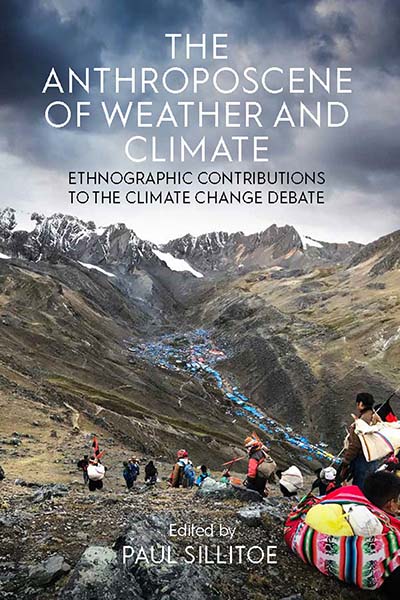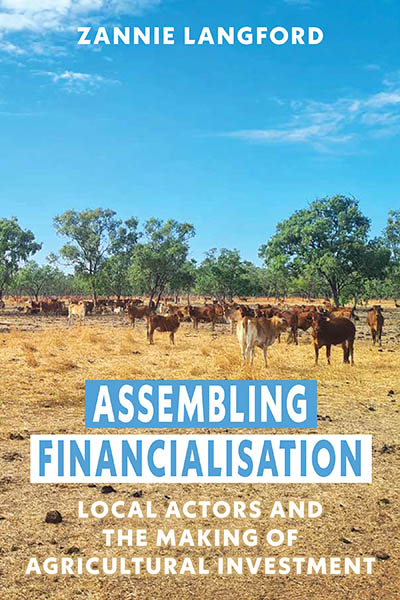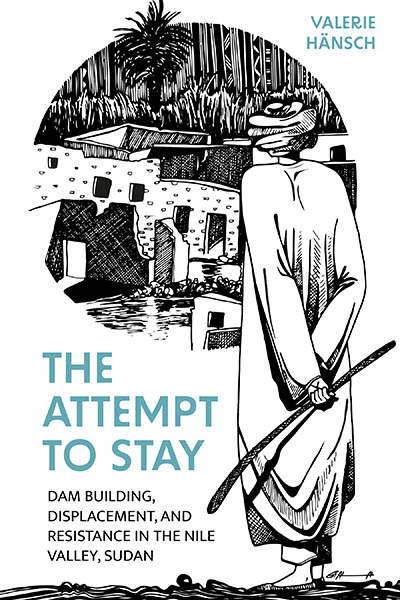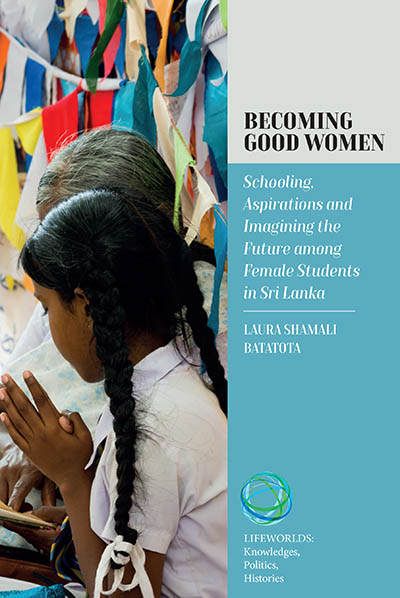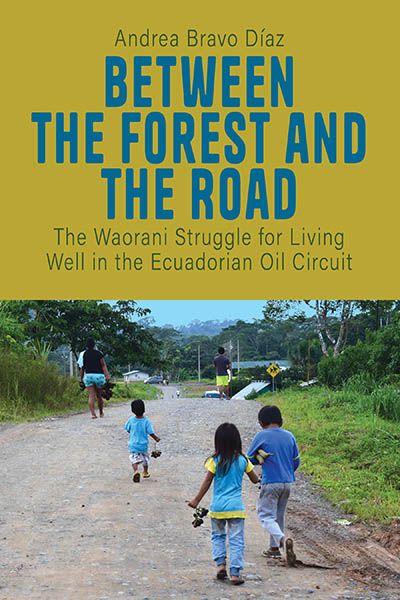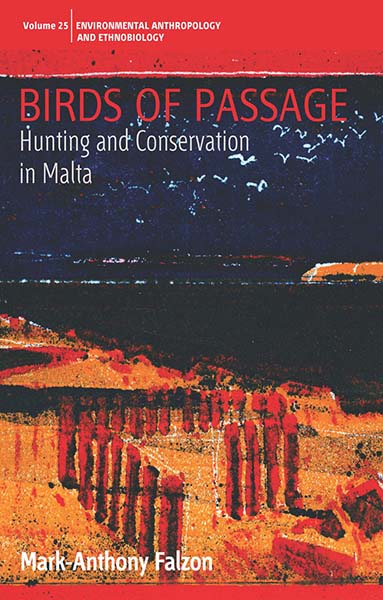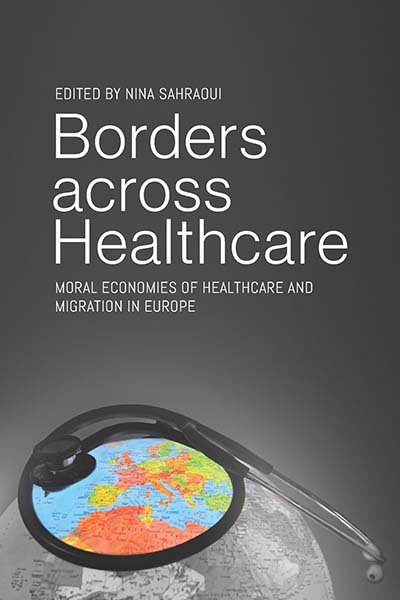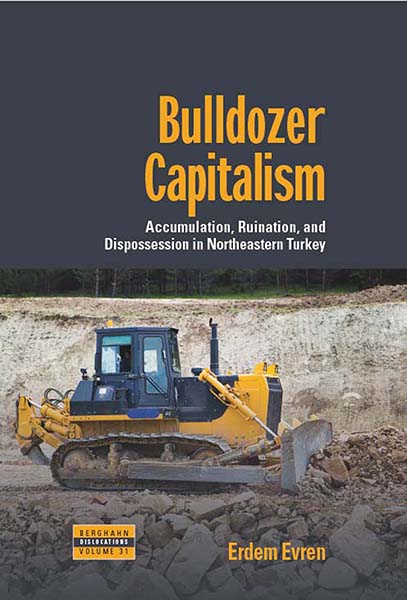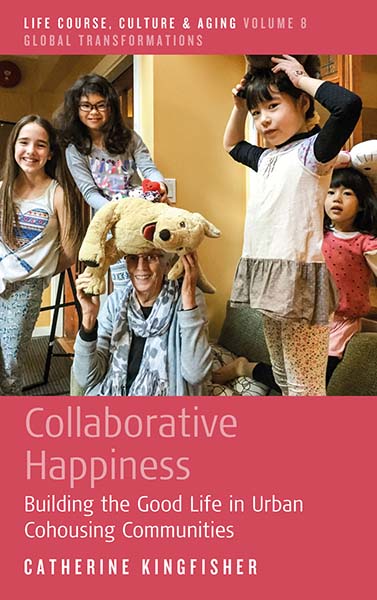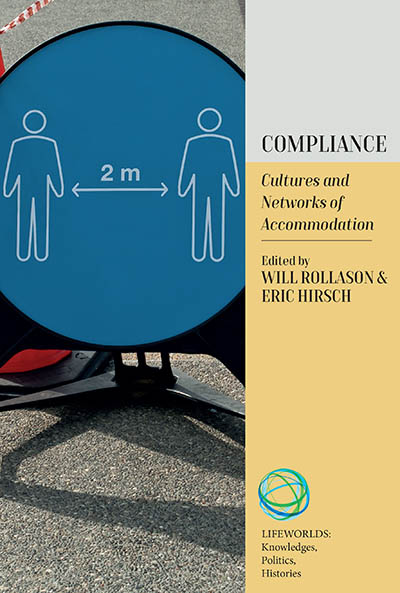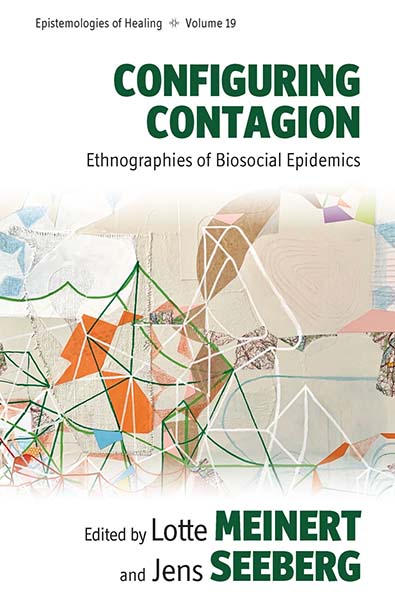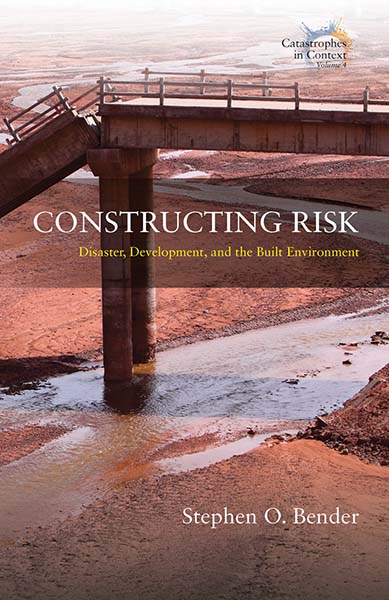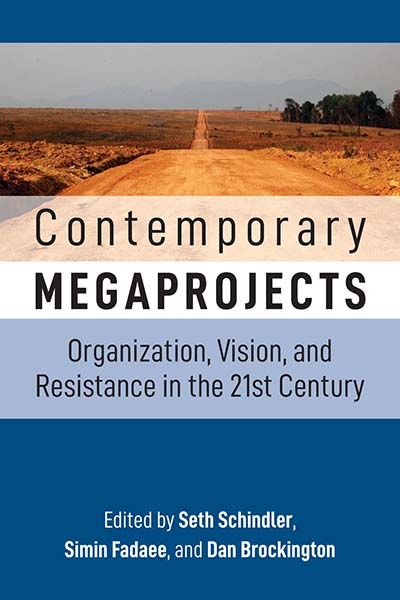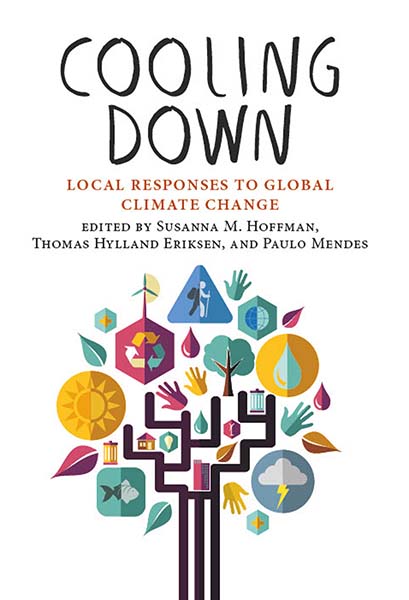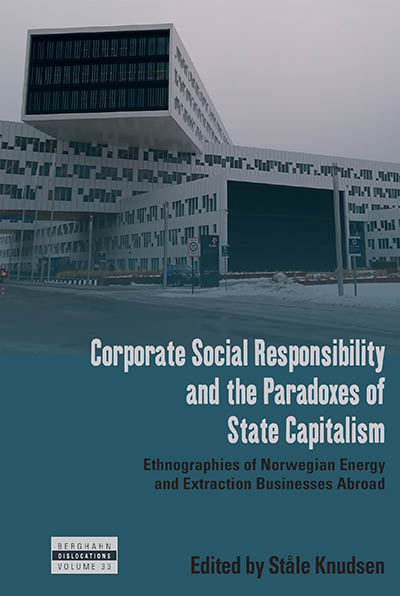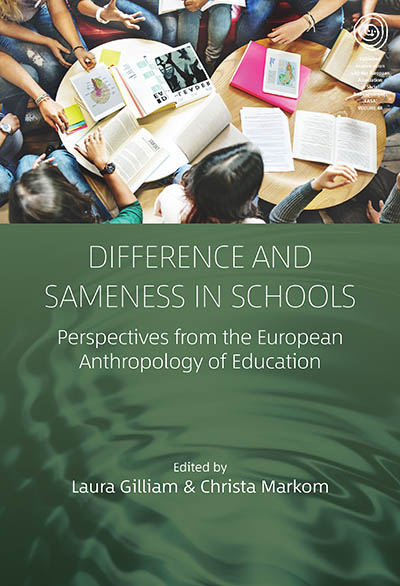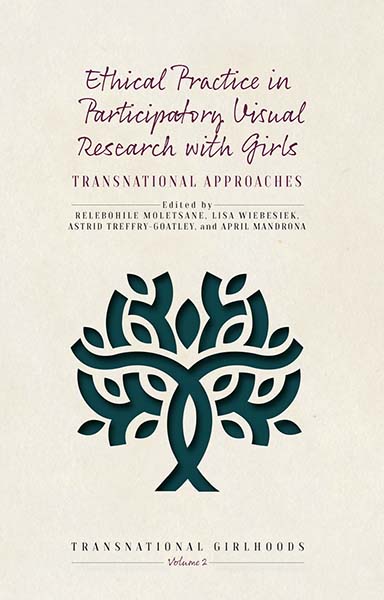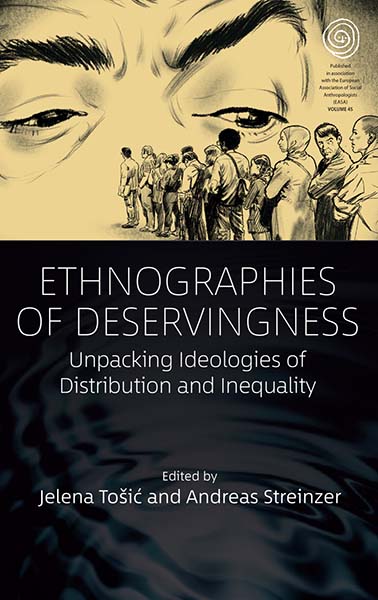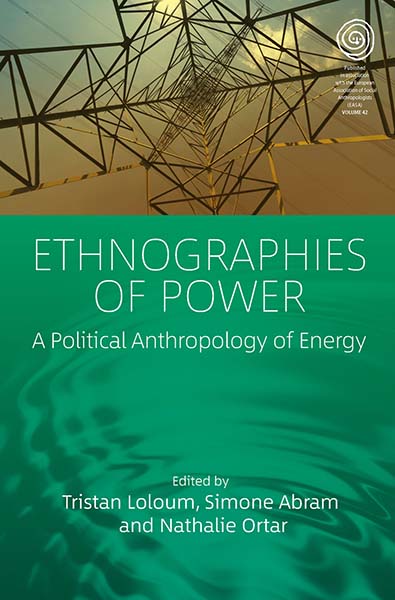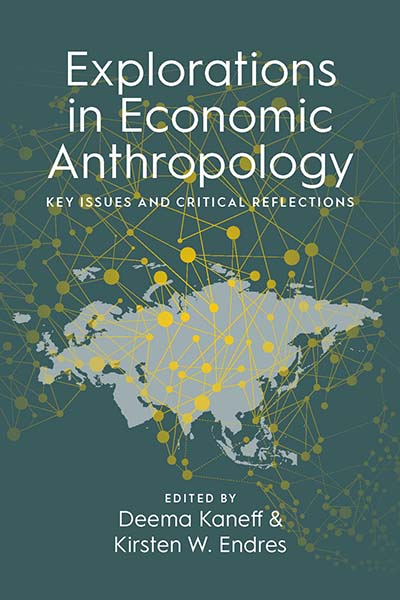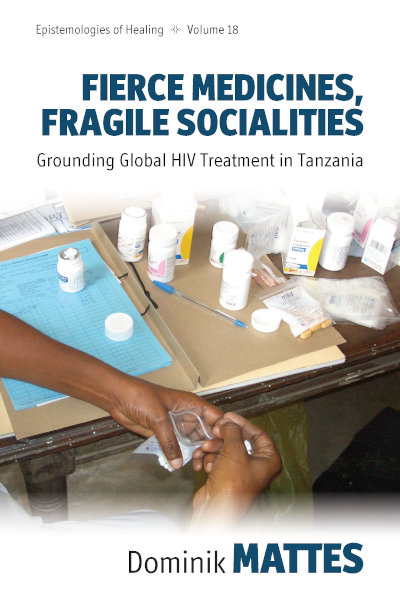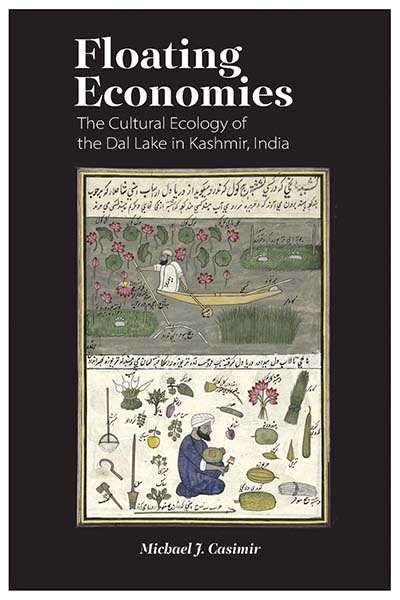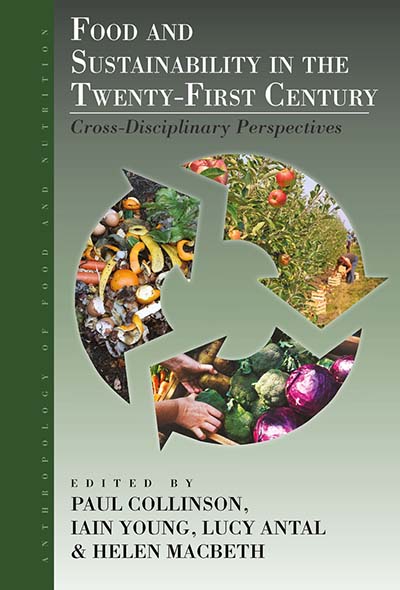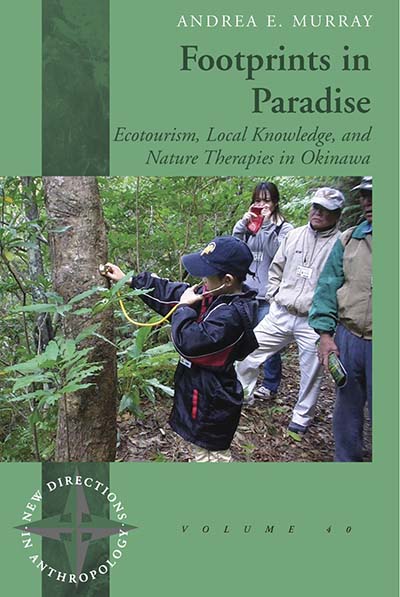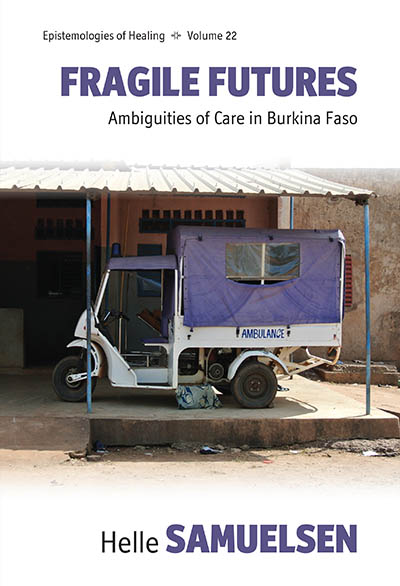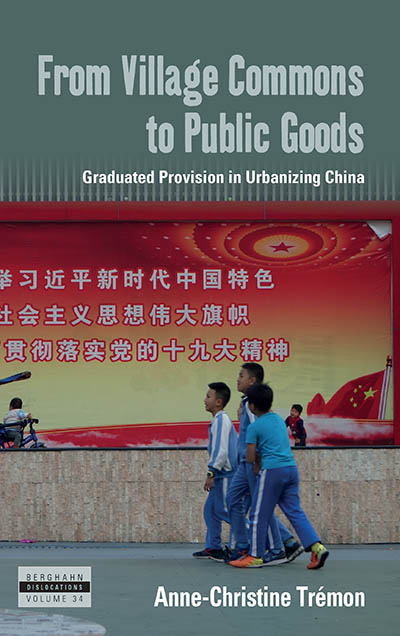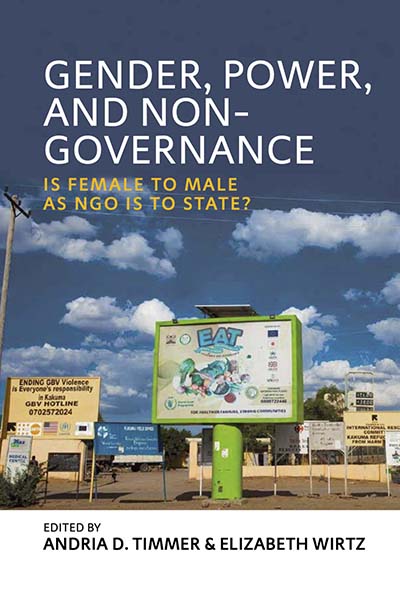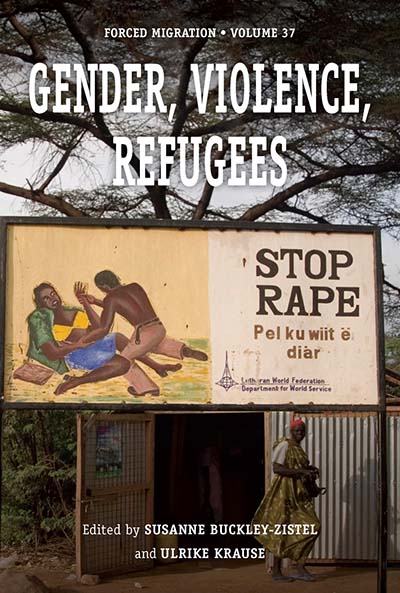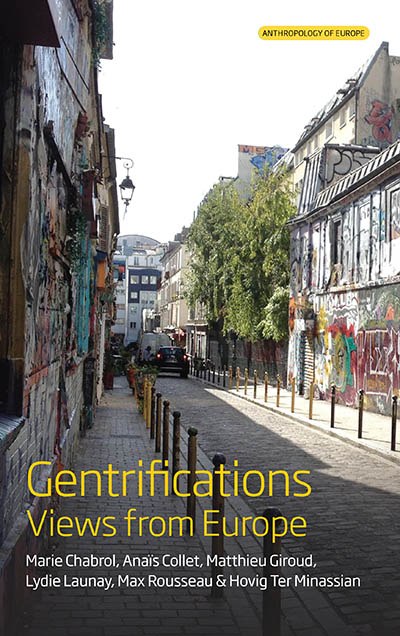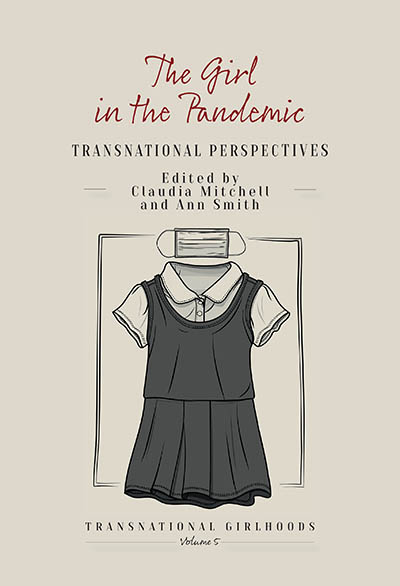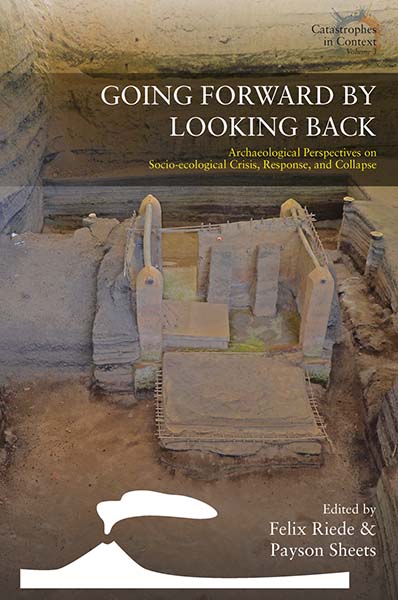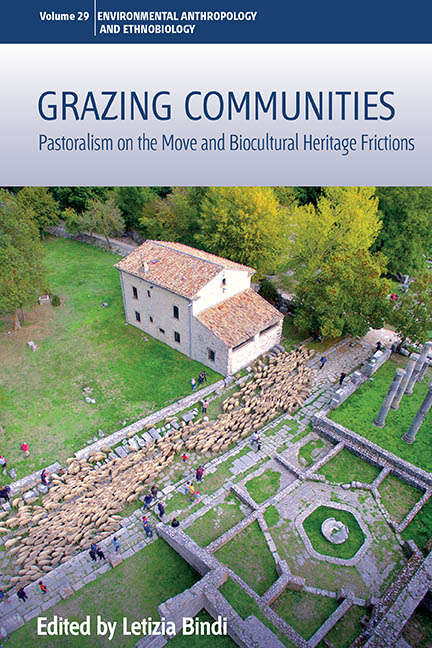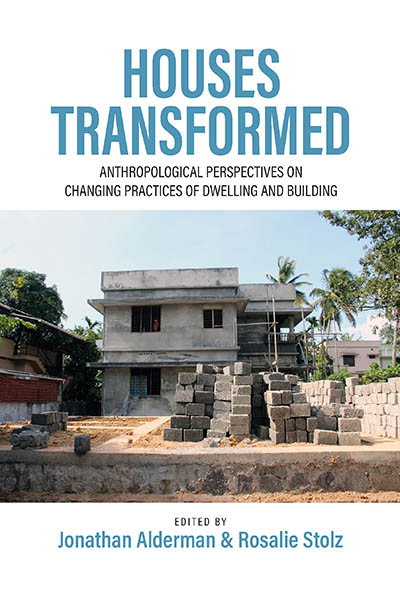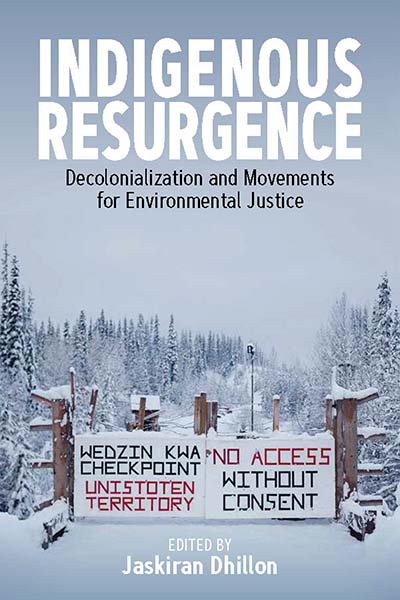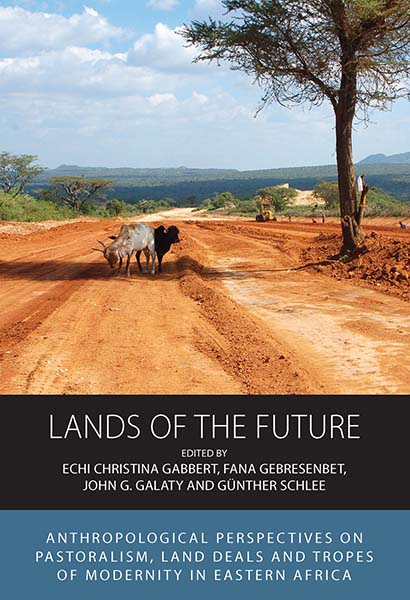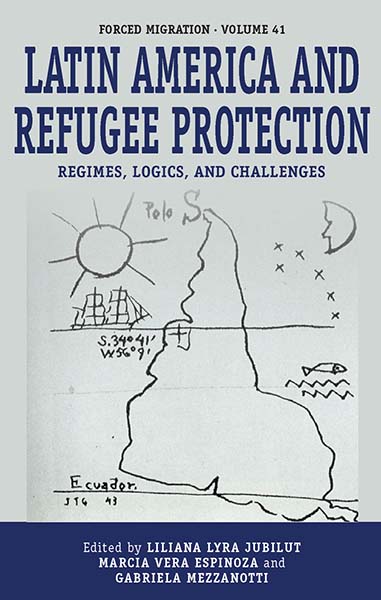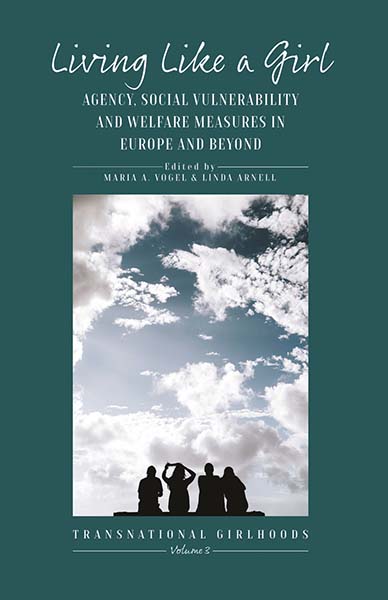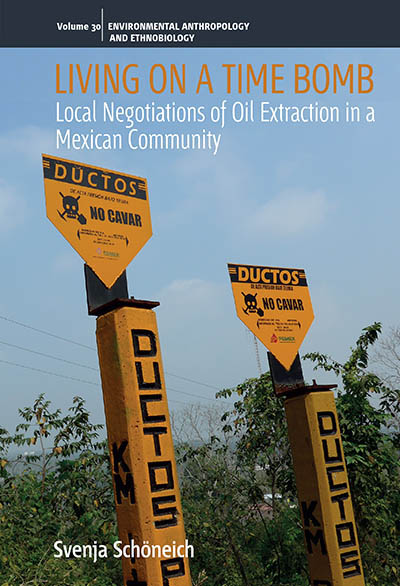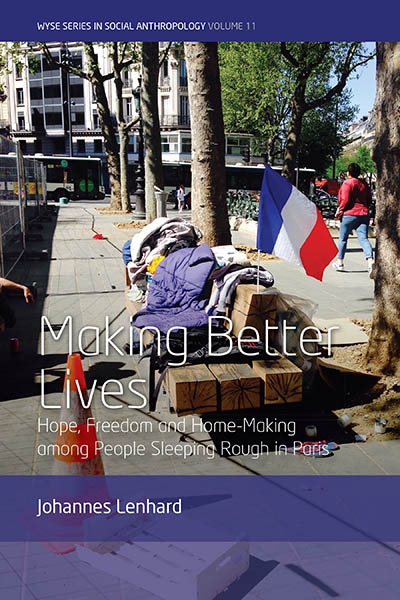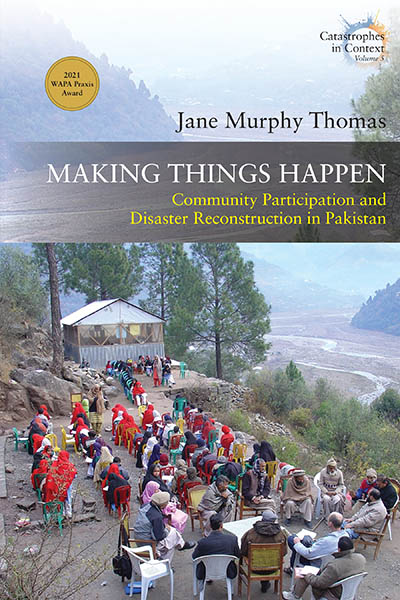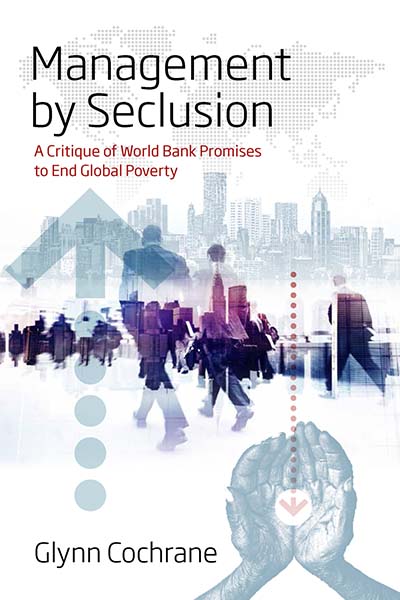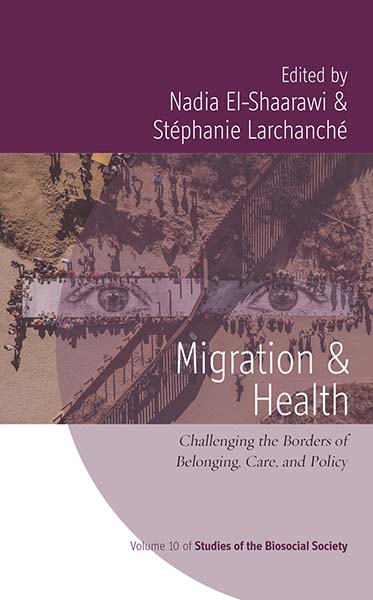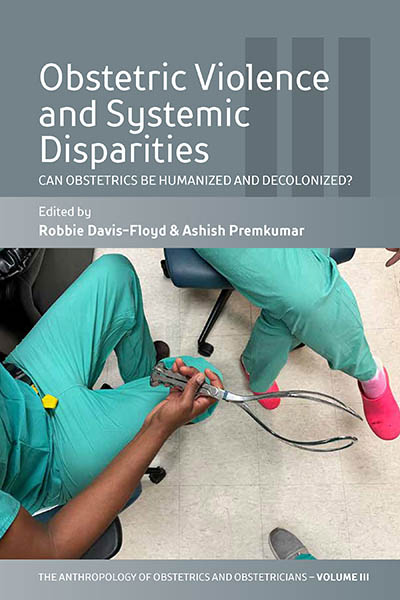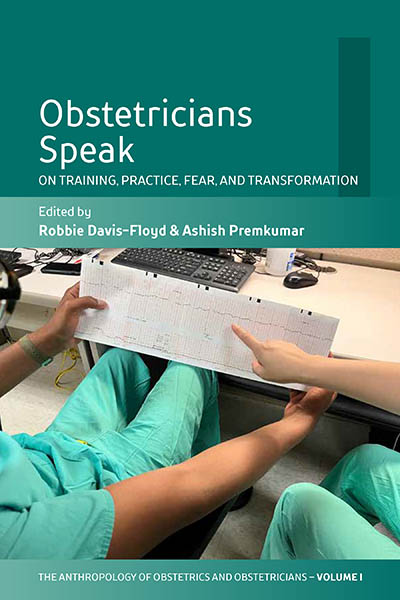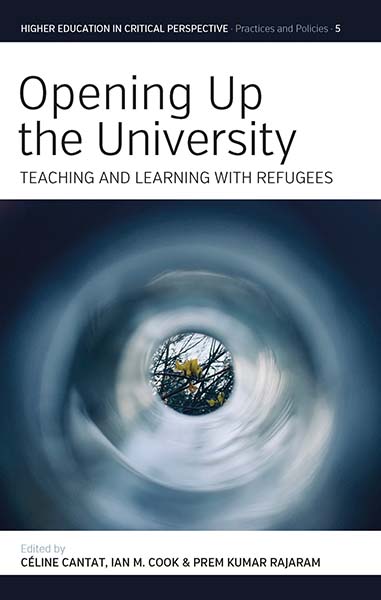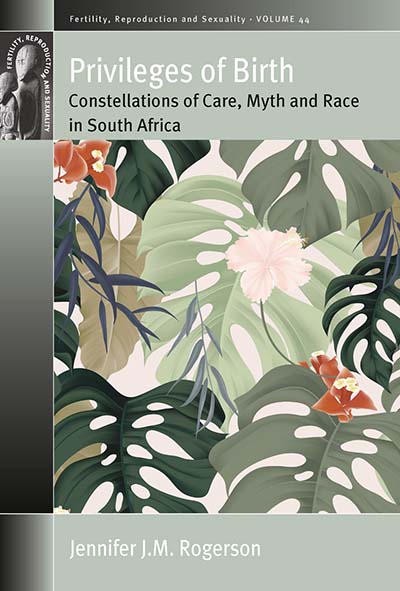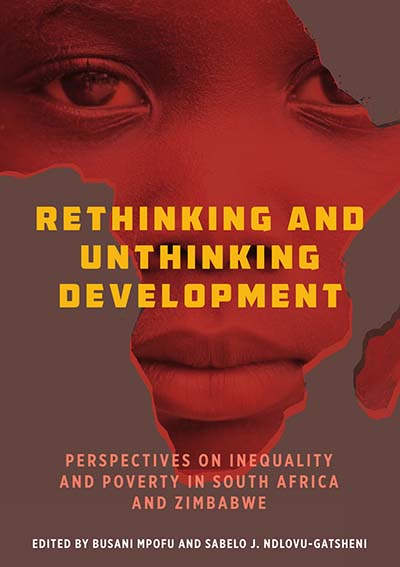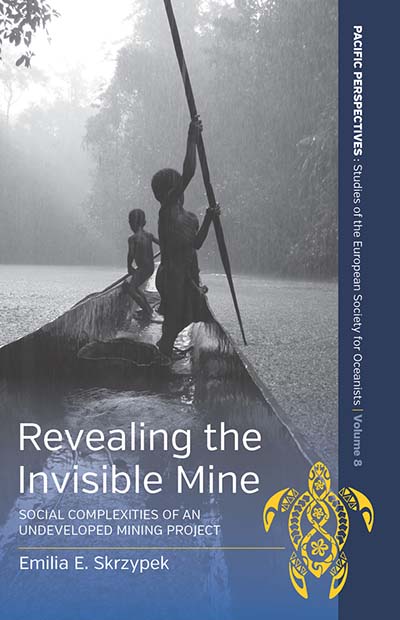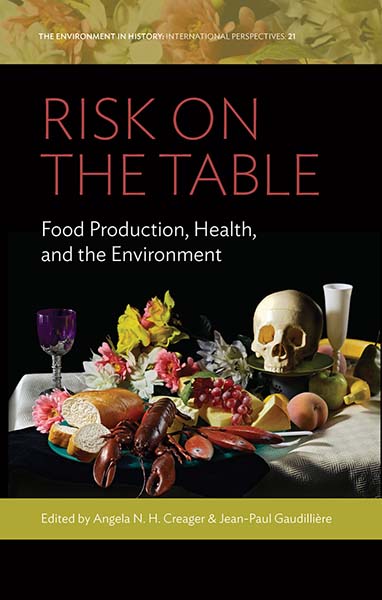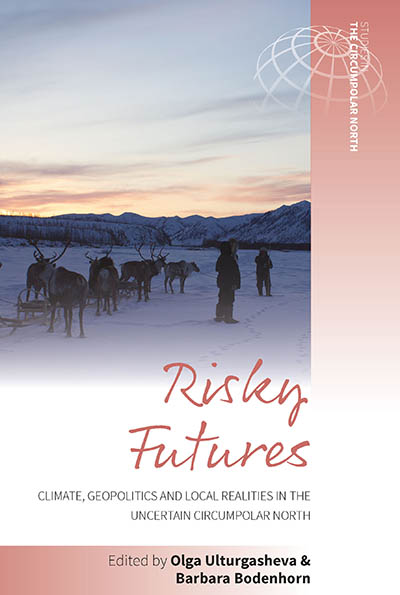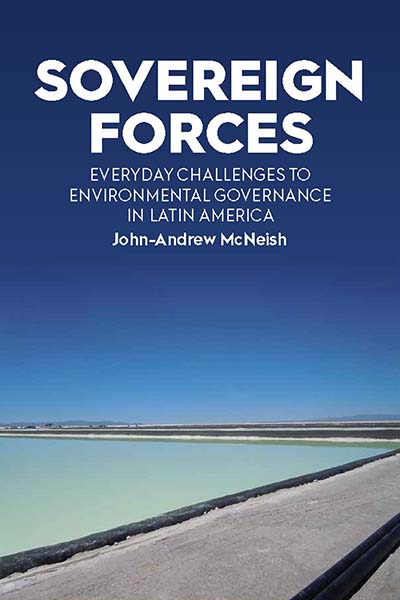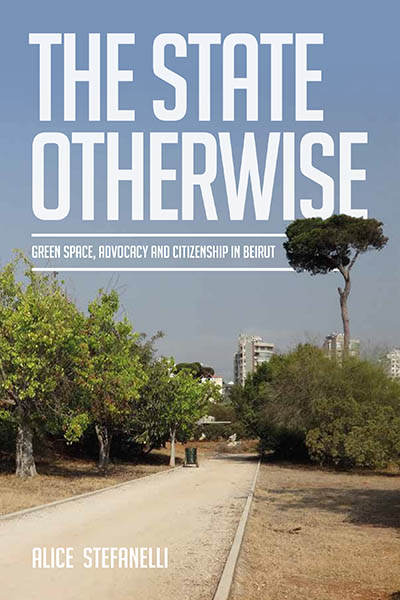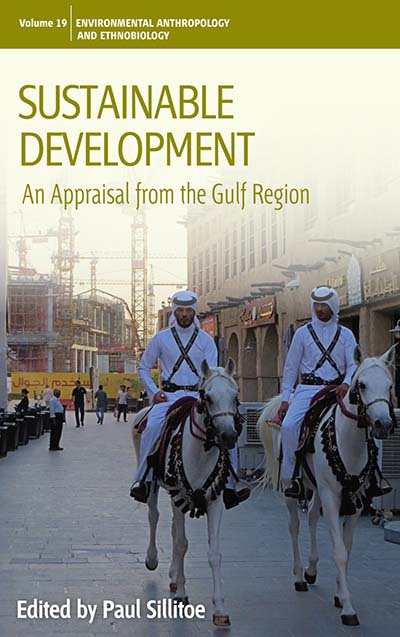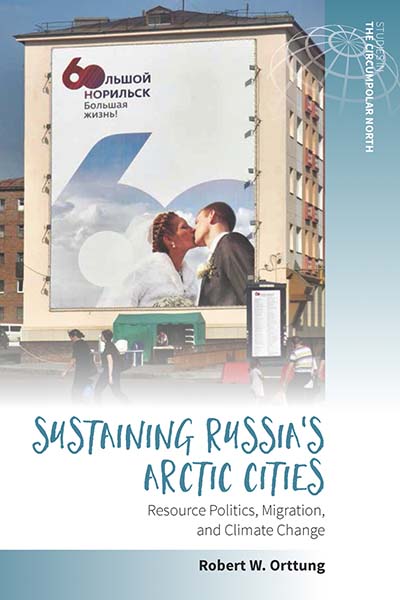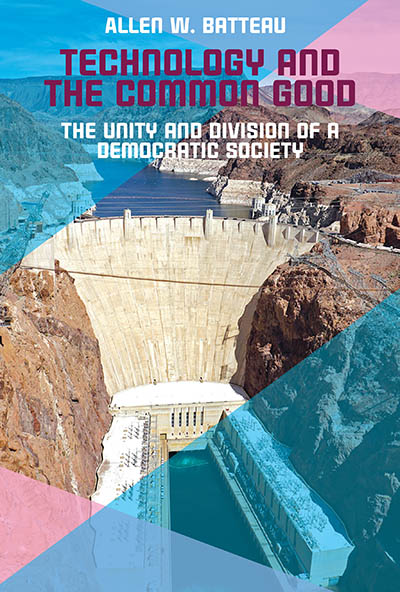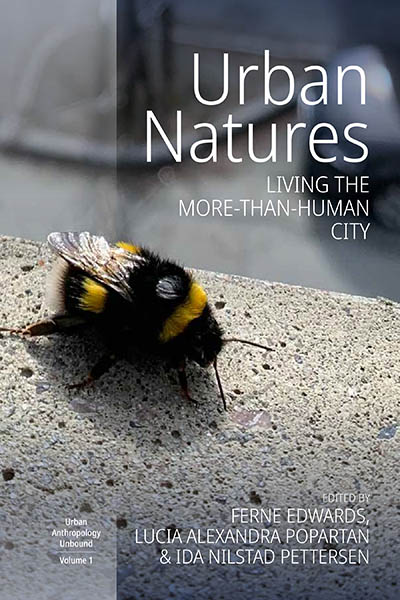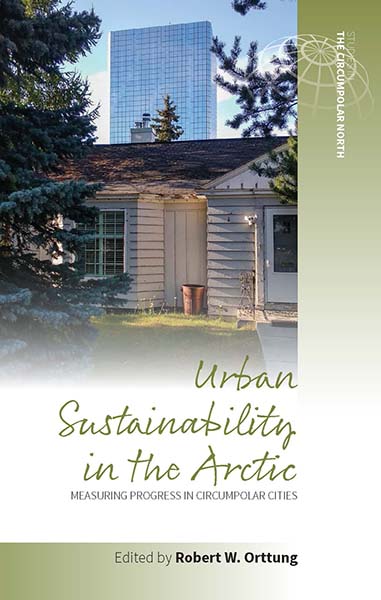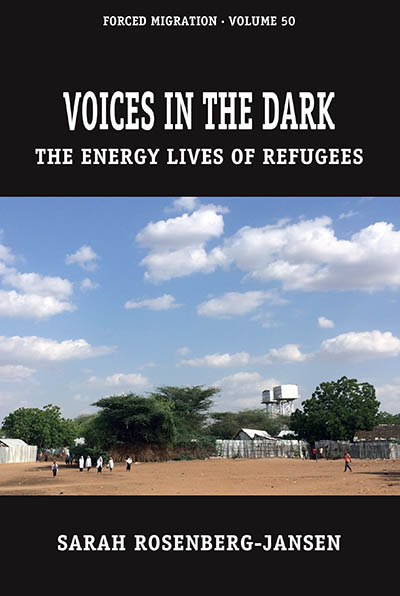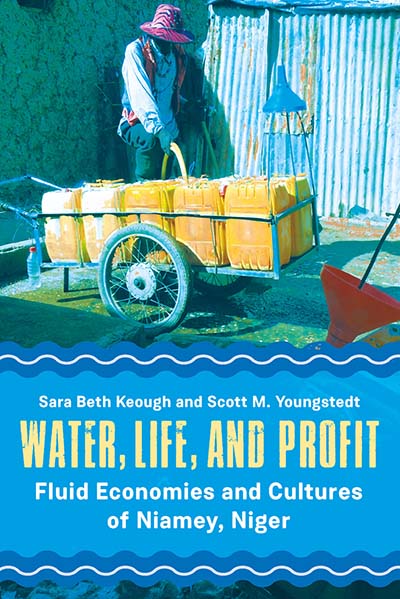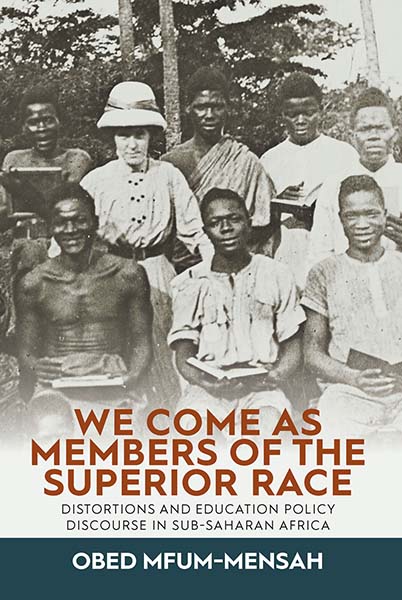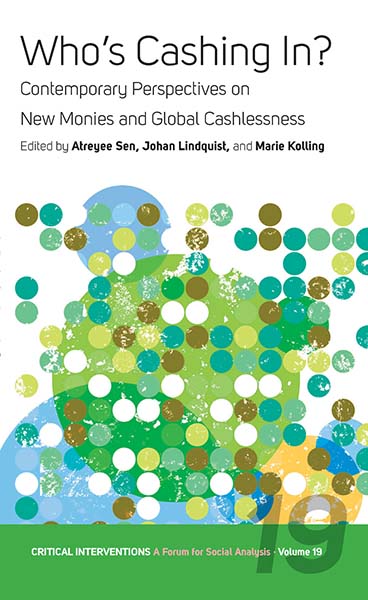Home -> Browse
-

The Anthroposcene of Weather and Climate
Ethnographic Contributions to the Climate Change Debate
Sillitoe, P. (ed)
While it is widely acknowledged that climate change is among the greatest global challenges of our times, it has local implications too. This volume forefronts these local issues, giving anthropology a voice in this great debate, which is otherwise dominated by natural scientists and policy makers. It shows what an ethnographic focus can offer in furthering our understanding of the lived realities of climate debates. Contributors from communities around the world discuss local knowledge of, and responses to, environmental changes that need to feature in scientifically framed policies regarding mitigation and adaptation measures if they are to be effective.
Subjects: Environmental Studies (General) Political and Economic Anthropology Urban Studies Sustainable Development Goals
-

Arctic Abstractive Industry
Assembling the Valuable and Vulnerable North
Mason, A. (ed)
Through diverse engagements with natural resource extraction and ecological vulnerability in the contemporary Arctic, contributors to this volume apprehend Arctic resource regimes through the concept of abstraction. Abstraction refers to the creation of new material substances and cultural values by detaching parts from existing substances and values. The abstractive process differs from the activity of extractive industries by its focus on the conceptual resources that conceal processes of exploitation associated with extraction. The study of abstraction can thus help us attune to the formal operations that make appropriations of value possible while disclosing the politics of extraction and of its representation.
Subjects: Anthropology (General) Environmental Studies (General) Development Studies Sustainable Development Goals
Area: Circumpolar
-

Arctic Silk Roads
An Anthropology of the Unbuilt
Magnani, N. & Magnani, M. (Eds.)
As climate change accelerates, melting sea ice is fueling the global imagination and geopolitical anticipation of the Arctic region’s accessible transport routes and possibilities for resource extraction. “Silk Roads” are being conjured across the Circumpolar North, both as official Arctic and infrastructural policy, and as broader visions of global connectivity with other markets. Following the myriad ways that local economies and agencies are proliferating around the anticipation of large-scale infrastructural corridors and their often-unrealized arteries, Arctic Silk Roads examines the different conditions under which top-down infrastructural dreams facilitate or constrain individual agencies.
Subjects: Political and Economic Anthropology Environmental Studies (General) Development Studies Sustainable Development Goals
Area: Circumpolar
-

Assembling Financialisation
Local Actors and the Making of Agricultural Investment
Langford, Z.
Farmers, Indigenous organisations, government and private-sector intermediaries from remote Northern Australia often negotiate with private finance capital to gain funds for agricultural development.The concept of financialisation is used to explore the drivers and effects of agrifood restructuring in the area, while assemblage theory is applied to position local actors as potential sites of power in negotiating connections between local spaces and global finance. This book demonstrates that while financialisation is a useful signifier of patterns of global change, it is assembled by a diverse range of often contradictory work.
Subjects: Political and Economic Anthropology Sociology Sustainable Development Goals
Area: Asia-Pacific
-

The Attempt to Stay
Dam Building, Displacement, and Resistance in the Nile Valley, Sudan
Hänsch, V.
The construction of the Merowe Dam along the Nile in northern Sudan flooded local villages and forced thousands of inhabitants to flee to higher ground. Despite the radical social and environmental transformations and an uncertain future, the Manasir have tried to continue their peasant way of life and resisted relocating to state-run resettlement schemes. Rather than focusing on migration and resettlement, the author follows the people’s attempts to preserve their homeland and have meaningful lives along the emerging reservoir. The book grapples with the fundamental question of how to re-establish life in a world that is falling apart.
Subjects: Political and Economic Anthropology Development Studies Environmental Studies (General) Sustainable Development Goals
Area: Africa
-

Becoming Good Women
Schooling, Aspirations and Imagining the Future Among Female Students in Sri Lanka
Batatota, L. S.
For female Sinhalese students attending a national school in the Central Province of Sri Lanka, the school serves as a significant base for cultural production, particularly in reproducing ethno-religious hegemony under the guise of ‘good’ Buddhist girls. It illustrates that tuition space acts as an important site for placemaking, where students play out their cosmopolitan aspirations whilst acquiring educational capital. Drawing on theories of social reproduction, the book examines young people’s aspirations of ‘figuring out’ their identity and visions of the future against the backdrop of nation-building processes within the school.
Subjects: Political and Economic Anthropology Educational Studies Gender Studies and Sexuality Sustainable Development Goals
Area: Asia
-

Between the Forest and the Road
The Waorani Struggle for Living Well in the Ecuadorian Oil Circuit
Bravo Díaz, A.
During the past two decades Ecuadorians have engaged in a national debate around Buen Vivir (living well). This ethnography discusses one of the ways in which people experience well-being or aspire to live well in Ecuadorian Amazonia. Waponi Kewemonipa (living well) is a Waorani notion that embraces ideas of good conviviality, health and certain ecological relations. For the Waorani living along the oil roads, living well has taken many pathways. Notably, they have developed new spatial organizations as they move between several houses, and navigate between the economy of the market and the economy of the forest.
Subjects: Anthropology (General) Political and Economic Anthropology Environmental Studies (General) Sustainable Development Goals
Area: Latin America and the Caribbean
-

Birds of Passage
Hunting and Conservation in Malta
Falzon, M.-A.
Bird migration between Europe and Africa is a fraught journey, particularly in the Mediterranean, where migratory birds are shot and trapped in large numbers. In Malta, thousands of hunters share a shrinking countryside. They also rub shoulders with a strong bird-protection and conservation lobby. Drawing on years of ethnographic fieldwork, this book traces the complex interactions between hunters, birds and the landscapes they inhabit, as well as the dynamics and politics of bird conservation. Birds of Passage looks at the practice and meaning of hunting in a specific context, and raises broader questions about human-wildlife interactions and the uncertain outcomes of conservation.
Subjects: Anthropology (General) Environmental Studies (General) Sustainable Development Goals
Area: Southern Europe
-

Borders across Healthcare
Moral Economies of Healthcare and Migration in Europe
Sahraoui, N. (ed)
Examining which actors determine undocumented migrants’ access to healthcare on the ground, this volume looks at what happens in the daily interactions between administrative personnel, healthcare professionals and migrant patients in healthcare institutions across Europe. Borders across Healthcare explores contemporary moral economies of the healthcare-migration nexus. The volume documents the many ways in which borders come to disrupt healthcare settings and illuminates how judgements of a health-related deservingness become increasingly important, producing hierarchies that undermine a universal right to healthcare.
Subjects: Medical Anthropology Mobility Studies Sociology Sustainable Development Goals
Area: Europe
-

Bulldozer Capitalism
Accumulation, Ruination, and Dispossession in Northeastern Turkey
Evren, E.
Set in the resource frontier of northeastern Turkey, Bulldozer Capitalism studies the rise and decline of an anti-dam/anti-displacement campaign and the political responses to other extractive projects that it helped to shape in its aftermath. The book shows that people can accommodate their own dispossession and displacement if they are directed to negotiate, invest in, and speculate on the destruction of their built environment and nature, and their material and immaterial bonds, wealth, and activities.
Subjects: Political and Economic Anthropology Sociology Sustainable Development Goals
Area: Middle East & Israel
-

Capitalism and Catastrophe
A Critical Disaster Studies Manifesto
Swamy, R.
Synthesizing critical perspectives on the impact of disasters with regard to social inequality, this book brings together key insights from political ecology and historical materialism. Querying assumptions about the “normal” conditions of life, it examines the exploitative structures and practices that shape everyday life using theoretical approaches such as rhythmanalysis, metabolic rift theory, and conjunctural analysis. While focusing on enduring historical processes that foster unequal social and ecological relationships in the present era, this book argues for a more expansive consideration of disasters, including within its scope catastrophes associated with structural violence, social conflict, war and destitution.
Subjects: Political and Economic Anthropology Sociology Development Studies Sustainable Development Goals
-

Collaborative Happiness
Building the Good Life in Urban Cohousing Communities
Kingfisher, C.
Understudied relative to other forms of intentional community, and under-recognized in policy-making circles, urban cohousing communities situate wellbeing as simultaneously social and subjective, while catering for groups of people so diverse in age. Collaborative Happiness looks at two such urban cohousing communities: Kankanmori, in Tokyo; and Quayside Village, in Vancouver. In expanding beyond mainstream approaches to happiness focused exclusively on the individual, Quayside Village and Kankanmori provide an alternative model for how to understand and practice the good life in an increasingly urbanized world marked by crisis of both social and environmental sustainability.
Subjects: Applied Anthropology Urban Studies Sociology Sustainable Development Goals
-

Compliance
Cultures and Networks of Accommodation
Rollason, W. & Hirsch, E. (eds)
Exploring compliance from an anthropological perspective, this book offers a varied and international selection of chapters covering taxation, corporate governance, medicine, development, carbon offsetting, irregular migration and the building trade. Compliance emerges as more than the opposite of resistance: instead, it appears as a valuable heuristic approach for understanding collective life, as a means by which actors strive to accommodate themselves to others. This perspective transcends conventional distinctions between power and resistance, and offers to open up new avenues of anthropological enquiry.
Subjects: Anthropology (General) Political and Economic Anthropology Sociology Sustainable Development Goals
-

Configuring Contagion
Ethnographies of Biosocial Epidemics
Meinert, L. & Seeberg, J. (eds)
Expanding our understanding of contagion beyond the typical notions of infection and pandemics, this book widens the field to include the concept of biosocial epidemics. The chapters propose varied and detailed answers to questions about epidemics and their contagious potential for specific infections and non-infectious conditions. Together they explore how inseparable social and biological processes configure co-existing influences, which create epidemics, and in doing so stress the role of social inequality in these processes. The authors compellingly show that epidemics do not spread evenly in populations or through simple coincidental biological contagion: they are biosocially structured and selective, and happen under specific economic, political and environmental conditions. This volume illustrates that an understanding of biosocial factors is vital for ensuring effective strategies for the containment of epidemics.
Subjects: Medical Anthropology Sociology Sustainable Development Goals
-

Conservation and Mobile Indigenous Peoples
Displacement, Forced Settlement and Sustainable Development
Chatty, D. & Colchester, M. (eds)
The second edition of this remarkable volume updates the immense advances in policy and soft international law with regards to the rights of mobile indigenous peoples in conservation.
The contributors to this book examine the interface between conservation and indigenous communities who are forced to move or settle elsewhere to accommodate environmental policies and biodiversity concerns. The case studies investigate successful and not so successful community-managed projects in Africa, the Middle East, South and SouthEastern Asia, Australia and Latin America.
Subjects: Refugee and Migration Studies Environmental Studies (General) Development Studies Sustainable Development Goals
Areas: Africa Asia Middle East & Israel
-

Constructing Risk
Disaster, Development, and the Built Environment
Bender, S. O.
Reviewing current policies and practices, the book assesses the financial, economic and physical risk of building in hazardous areas, and looks at how societies approach economic development while trying to create a more resilient built environment in spite of the dangers. It examines the vulnerability of economic and social infrastructure to natural hazard events, looks at policies which imperil infrastructure, and proposes new development approaches to be undertaken by sovereign states, international development banks, NGOs, and bilateral aid agencies.
Subjects: Environmental Studies (General) Development Studies Political and Economic Anthropology Sustainable Development Goals
-

Contemporary Megaprojects
Organization, Vision, and Resistance in the 21st Century
Schindler, S., Fadaere, S., Brockington, D. (eds)
Contemporary megaprojects have evolved from the discreet, modernist projects undertaken in the past by centralized authorities to encompass everything from large-scale construction to space exploration. Contemporary Megaprojects explores how these projects have been impacted by cutting-edge technology, the private sector, and the processes of decentralization and dematerialization. With case studies ranging from mega-plantations in Southeast Asia to ocean mapping to sports events, the contributions in this collected volume demonstrate the increasing ambition and pervasiveness of these projects, as well as their significant impact on both society and the environment.
Subjects: Development Studies Environmental Studies (General) Cultural Studies (General) Sustainable Development Goals
-

Cooling Down
Local Responses to Global Climate Change
Hoffman, S. M., Eriksen, T. H., & Mendes, P. (eds)
Climate change is a slowly advancing crisis sweeping over the planet and affecting different habitats in strikingly diverse ways. While nations have signed treaties and implemented policies, most actual climate change assessments, adaptations, and countermeasures take place at the local level. People are responding by adjusting their practices, livelihoods, and cultures, protesting and migrating. This book portrays the diversity of explanations and remedies as expressed at the community level and its emphasis on the crucial importance of ethnographic detail in demonstrating how people in different parts of the world are scaling down the phenomenon of global warming.
Subjects: Environmental Studies (General) Political and Economic Anthropology Urban Studies Sustainable Development Goals
-

Corporate Social Responsibility and the Paradoxes of State Capitalism
Ethnographies of Norwegian Energy and Extraction Businesses Abroad
Knudsen, S. (ed)
Through a series of case studies in diverse regions of the world, this book explores how transnational Norwegian energy and extractive industries handle corporate social responsibility (CSR) when operating abroad in places such as China, Brazil, and Turkey. With significant state ownership and embeddedness in the Nordic societal model, Norwegian capitalism is often represented as “benign” or ethical. By tracing CSR policy and practice—from headquarters to operations—this volume critically explores the workings of Norwegian corporate capitalism and its engagement with key issues of responsibility, accountability, and sustainability.
Subjects: Political and Economic Anthropology Environmental Studies (General) Applied Anthropology Sustainable Development Goals
Area: Northern Europe
-

Desert Entanglements
The Making of the Badiya by Sahrawi Refugees of Western Sahara
Volpato, G.
The Sahrawi refugees in southwestern Algeria have struggled from exile for fifty years to reconfigure the animated desert they call badiya. They recovered camel husbandry and access to part of the former rangeland, and wove it back as seasonal nomadism. Desert Entanglements analyzes this process as an act of place-making premised on refugees’ agency.
Subjects: Anthropology (General) Environmental Studies (General) Refugee and Migration Studies Sustainable Development Goals
Area: Africa
-

Difference and Sameness in Schools
Perspectives from the European Anthropology of Education
Gilliam, L. & Markom, C. (eds)
Presenting European Anthropology of Education through eleven studies of European schools, this volume explores the constructing and handling of difference and sameness in the central institutions of schools. Based on ethnographic studies of schools in Greece, England, Norway, Italy, Switzerland, the Czech Republic, Spain, Austria, Russia, Germany, the Netherlands and Denmark, it illustrates how anthropological studies of schools provide a window to larger society. It thus offers insights into cultural lessons taught to children through policies, institutional structures and everyday interactions, as well as into schools’ entanglement in state projects, cultural processes, societal histories and conflicts, and hence into contemporary Europe.
Subjects: Educational Studies Anthropology (General) Sociology Sustainable Development Goals
Area: Europe
-

Ethical Practice in Participatory Visual Research with Girls
Transnational Approaches
Moletsane, R., Wiebesiek, L.,Treffry-Goatley, A. & Mandrona, A. (eds)
Girls and young women, particularly those from rural and indigenous communities around the world, face some of the most adverse social issues in the world despite the existence of protective laws and international treaties. Ethical Practice in Participatory Visual Research with Girls explores the potential of participatory visual method (PVM) for girls and young women in these communities, presenting and critiquing the everyday ethical dilemmas visual researchers face and the strategies they implement to address them, reflecting on principles of autonomy, social justice, and beneficence in transnational, indigenous and rural contexts.
Subjects: Gender Studies and Sexuality Sociology Sustainable Development Goals
-

Ethnographies of Deservingness
Unpacking Ideologies of Distribution and Inequality
Tošić, J. & Streinzer, A. (eds)
Claims around 'who deserves what and why' moralise inequality in the current global context of unprecedented wealth and its ever more selective distribution. Ethnographies of Deservingness explores this seeming paradox and the role of moralized assessments of distribution by reconnecting disparate discussions in the anthropology of migration, economic anthropology and political anthropology. This edited collection provides a novel and systematic conceptualization of Deservingness and shows how it can serve as a prime and integrative conceptual prism to ethnographically explore transforming welfare states, regimes of migration, as well as capitalist social reproduction and relations at large.
Subjects: Political and Economic Anthropology Refugee and Migration Studies Sociology Sustainable Development Goals
-

Ethnographies of Power
A Political Anthropology of Energy
Loloum, T., Abram, S., & Ortar, N. (eds)
Energy related infrastructures are crucial to political organization. They shape the contours of states and international bodies, as well as corporations and communities, framing their material existence and their fears and idealisations of the future. Ethnographies of Power brings together ethnographic studies of contemporary entanglements of energy and political power. Revisiting classic anthropological notions of power, it asks how changing energy related infrastructures are implicated in the consolidation, extension or subversion of contemporary political regimes and discovers what they tell us about politics today.
Subjects: Anthropology (General) Political and Economic Anthropology Environmental Studies (General) Sustainable Development Goals
-

Explorations in Economic Anthropology
Key Issues and Critical Reflections
Kaneff, D. & Endres, K. W. (eds)
At a time of rising global economic precarity and social inequality, the field of economic anthropology offers solutions through the study of local and contextualized economic practices. This book is made up of an exciting collection of succinct essays authored by leading scholars primarily from the field of economic anthropology, but also featuring contributions from sociology and history. The chapters engage with debates at the cutting edge of research on the topics of Eurasia, the anthropology of postsocialism and the embeddedness of economic practices.
Subjects: Political and Economic Anthropology Sociology Sustainable Development Goals
-

Fierce Medicines, Fragile Socialities
Grounding Global HIV Treatment in Tanzania
Mattes, D.
Set in Tanga, a city on the Tanzanian Swahili coast, Dominik Mattes examines the implementation of antiretroviral HIV-treatment (ART) in the area, exploring the manifold infrastructural and social fragilities of treatment provision in public HIV clinics as well as patients’ multi-layered struggles of coming to terms with ART in their everyday lives. Based on extensive ethnographic fieldwork, the book shows that, notwithstanding the massive rollout of ART, providing treatment and living a life with HIV in settings like Tanga continue to entail social, economic, and moral challenges and long-term uncertainties, which contradict the global rhetoric of the “normalization of HIV”.
Subjects: Medical Anthropology Development Studies Sustainable Development Goals
Area: Africa
-

Floating Economies
The Cultural Ecology of the Dal Lake in Kashmir, India
Casimir, M. J.
In the Himalayas of the Indian part of Kashmir three communities depend on the ecology of the Dal lake: market gardeners, houseboat owners and fishers. Floating Economies describes for the first time the complex intermeshing economy, social structure and ecology of the area against the background of history and the present volatile socio-political situation. Using a holistic and multidisciplinary approach, the author deals with the socioeconomic strategies of the communities whose livelihoods are embedded here and analyses the ecological condition of the Dal, and the reasons for its progressive degradation.
Subjects: Anthropology (General) Environmental Studies (General) Sustainable Development Goals
Area: Asia
-

Food and Sustainability in the Twenty-First Century
Cross-Disciplinary Perspectives
Collinson, P., Young, I., Antal, L., & Macbeth, H. (eds)
Sustainability is one of the great problems facing food production today. Using cross-disciplinary perspectives from international scholars working in social, cultural and biological anthropology, ecology and environmental biology, this volume brings many new perspectives to the problems we face. Its cross-disciplinary framework of chapters with local, regional and continental perspectives provides a global outlook on sustainability issues. These case studies will appeal to those working in public sector agencies, NGOs, consultancies and other bodies focused on food security, human nutrition and environmental sustainability.
Subjects: Food & Nutrition Anthropology (General) Sustainable Development Goals
-

Footprints in Paradise
Ecotourism, Local Knowledge, and Nature Therapies in Okinawa
Murray, A. E.
The economic imperative of sustainable tourism development frequently shapes life on small subtropical islands. In Okinawa, ecotourism promises to provide employment for a dwindling population of rural youth while preserving the natural environment and bolstering regional pride. Footprints in Paradise explores the transformation in community and sense of place as Okinawans come to view themselves through the lens of the visiting tourist consumer, and as their language, landscapes, and wildlife are reconstituted as treasured and vulnerable resources. The rediscovery and revaluing of local ecological knowledge strengthens Okinawan or Uchinaa cultural heritage, despite the controversial presence of US military bases amidst a hegemonic Japanese state.
Subjects: Anthropology (General) Travel and Tourism Environmental Studies (General) Sustainable Development Goals
Area: Asia-Pacific
-

Fragile Futures
Ambiguities of Care in Burkina Faso
Samuelsen, H.
Caring for small children and the family in Burkina Faso is hard work. Although the health infrastructure in Burkina Faso is weak and many citizens feel neglected by the state, Fragile Futures shows that the state continues to play an important role in people’s engagements and hopes for a better future. Based on more than twenty years of research engagement with Burkina Faso, it is an ethnography of how rural citizens address ambiguities of sickness and care and try to secure a decent future for themselves and their families.
Subjects: Anthropology (General) Medical Anthropology Development Studies Sustainable Development Goals
Area: Africa
-

From Village Commons to Public Goods
Graduated Provision in Urbanizing China
Trémon, A.-C.
Illuminating the complex processes of China’s uneven urbanization through the lens of the transition from village commons to public goods, this book is set in three urbanized villages in Shenzhen, Chengdu, and Xi’an, which have experienced similar demographic explosions and dramatic changes to their landscapes, the livelihoods of its inhabitants, and the power structures governing their residents. Graduated provision is the delivery of public goods informed by the teleological ideology of urbanization, and by neoliberalism with Chinese characteristics, and has been employed as an answer to the challenges of making public goods, such as welfare provisions, public parks, education, and senior care, equally accessible to all in recently urbanized communities.
Subjects: Anthropology (General) Urban Studies Sociology Sustainable Development Goals
Area: Asia
-

Gender, Power, and Non-Governance
Is Female to Male as NGO Is to State?
Timmer, A. D. & Wirtz, E. (eds)
Using Sherry Ortner’s analogy of Female/Nature, Male/Culture, this volume interrogates the gendered aspects of governance by exploring the NGO/State relationship. By examining how NGOs/States perform gendered roles and actions and the gendered divisions of labor involved in different types of institutional engagement, this volume attends to the ways in which gender and governance constitute flexible, relational, and contingent systems of power. The chapters in this volume present diverse analyses of the ways in which projects of governance both reproduce and challenge binaries.
Subjects: Gender Studies and Sexuality Anthropology (General) Development Studies Sustainable Development Goals
-

Gender, Violence, Refugees
Buckley-Zistel, S. & Krause, U. (eds)
Providing nuanced accounts of how the social identities of men and women, the context of displacement and the experience or manifestation of violence interact, this collection offers conceptual analyses and in-depth case studies to illustrate how gender relations are affected by displacement, encampment and return. The essays show how these factors lead to various forms of direct, indirect and structural violence. This ranges from discussions of norms reflected in policy documents and practise, the relationship between relief structures and living conditions in camps, to forced military recruitment and forced return, and covers countries in Africa, Asia and Europe.
Subjects: Refugee and Migration Studies Peace and Conflict Studies Gender Studies and Sexuality Sustainable Development Goals
-

Gentrifications
Views from Europe
Chabrol, M., Collet, A., Giroud, M., Launay, L., Rousseau, M., Minassian, H. ter
Offering an original discussion of the gentrification phenomenon in Europe, this book provides new theoretical insights into classical works on the subject. Using a thorough analysis of the diversity of the forms, places and actors of gentrification in an attempt to isolate its ‘DNA’, the book addresses the place of social groups in cities, their competition over the appropriation of space, the infrastructure unequally offered to them by economic and political actors and the stakes of everyday social relationships.
Subjects: Urban Studies Sociology Anthropology (General) Sustainable Development Goals
Area: Europe
-

The Girl in the Pandemic
Transnational Perspectives
Mitchell, C. & Smith, A. (eds)
As seen in previous pandemics, girls and young women are particularly vulnerable as social issues such as homelessness, mental healthcare, access to education, and child labor are often exacerbated. The Girl in the Pandemic considers what academics, community activists, and those working in local, national, and global NGOs are learning about the lives of girls and young women during pandemics. Drawing from a range of responses during the pandemic including first person narratives, community ethnographies, and participatory action research, this collection offers a picture of how the COVID-19 pandemic played out in eight different countries.
Subjects: Gender Studies and Sexuality Development Studies Sociology Sustainable Development Goals
-

Going Forward by Looking Back
Archaeological Perspectives on Socio-Ecological Crisis, Response, and Collapse
Riede, F. & Sheets, P. (eds)
Catastrophes are on the rise due to climate change, as is their toll in terms of lives and livelihoods as world populations rise and people settle into hazardous places. While disaster response and management are traditionally seen as the domain of the natural and technical sciences, awareness of the importance and role of cultural adaptation is essential. This book catalogues a wide and diverse range of case studies of such disasters and human responses. This serves as inspiration for building culturally sensitive adaptations to present and future calamities, to mitigate their impact, and facilitate recoveries.
Subjects: Archaeology Applied Anthropology Environmental Studies (General) Sustainable Development Goals
-

Grazing Communities
Pastoralism on the Move and Biocultural Heritage Frictions
Bindi, L. (ed)
Pastoralism is a diffused and ancient form of human subsistence and probably one of the most studied by anthropologists at the crossroads between continuities and transformations. The present critical discourse on sustainable and responsible development implies a change of practices, a huge socio-economic transformation, and the return of new shepherds and herders in different European regions. Transhumance and extensive breeding are revitalized as a potential resource for inner and rural areas of Europe against depopulation and as an efficient form of farming deeply influencing landscape and functioning as a perfect eco-system service. This book is an occasion to reconsider grazing communities’ frictions in the new global heritage scenario.
Subjects: Anthropology (General) Sociology Development Studies Sustainable Development Goals
Area: Europe
-

Groundwater Politics
Advanced Extractivism and Slow Resistance
Babidge, S.
The mining industry is an expanding socio-ecological and political problem worldwide, not least in Atacameño-Likanantay (Indigenous) territories in the hyper-arid Salar de Atacama, Chile. Groundwater Politics addresses the social, technical and political conditions it calls ‘advanced extractivism’ to reveal how groundwater extraction sustains both ecological damage and mining economies. It richly describes the area's copper and lithium industries as historically linked with Indigenous communities and their ecological and economic futures. Based on over a decade of ethnographic research, the book casts community strategies to control water and territory as 'slow resistance’, the structural and multifaceted practices that generate a material future amid potential resource exhaustion.
Subjects: Environmental Studies (General) Political and Economic Anthropology Development Studies Sustainable Development Goals
Area: Latin America and the Caribbean
-

Haunting Futures
Crisis, Migration and Anticipation in Iceland
Pawlak, M.
The 2008 economic collapse in Iceland sent its residents into a destabilising crisis with far-reaching, temporal and affective consequences. Haunting Futures explores how the complex relationships of this unstable past and the anticipatory modes of the ongoing present keep Icelanders and the Polish migrant community in their midst alert to looming futures in crisis. It offers insights into timely crisis-ridden impacts and imaginings, migration processes and social understandings and practices. Through its attention to how people engage with crisis temporally and affectively, the book presents the crisis not simply as an isolated and distressing event but as a spectre embodied in time through ongoing anticipation.
Subjects: Political and Economic Anthropology Sociology History: 20th Century to Present Sustainable Development Goals
Area: Northern Europe
-

Houses Transformed
Anthropological Perspectives on Changing Practices of Dwelling and Building
Alderman, J. & Stolz, R. (eds)
Over the decades, there has been a world-wide transformation of so-called ‘vernacular houses’. Based on ethnographic accounts from different regions, Houses Transformed investigates the changing practices of building houses in a transnational context. It explores the intersection of house biographies and social change, the politics of housing design, the social fabrication of aspirational houses, the domestication of concrete and the intersection of materiality and ontology as well as the rhetoric of the vernacular. The volume provides new anthropological pathways to understand the dynamics of dwelling in the 21st century.
Subjects: Anthropology (General) Sociology Development Studies Sustainable Development Goals
-

Indigenous Resurgence
Decolonialization and Movements for Environmental Justice
Dhillon, J.
From the Standing Rock Sioux Tribe’s resistance against the Dakota Access pipeline to the Nepalese Newar community’s protest of the Fast Track Road Project, Indigenous peoples around the world are standing up and speaking out against global capitalism to protect the land, water, and air. By reminding us of the fundamental importance of placing Indigenous politics, histories, and ontologies at the center of our social movements, Indigenous Resurgence positions environmental justice within historical, social, political, and economic contexts, exploring the troubling relationship between colonial and environmental violence and reframing climate change and environmental degradation through an anticolonial lens.
Subjects: Environmental Studies (General) Applied Anthropology Colonial History Sustainable Development Goals
-

Insidious Capital
Frontlines of Value at the End of a Global Cycle
Kalb, D. (ed)
With a team of anthropologists and geographers, Insidious Capital explores “value and values” in what may well be the last phase of capitalist globalization. In a global perspective of fast-transforming social spaces that move from East to West, the book explores the struggles around the exploitation and valuation of labor, environmental politics, expansion of the ground rent, new hierarchies, the contradictions of higher education, the offshoring of “immaterial” labor, the illiberal right, and the mobilizations against it. This is a book about the variegated frontlines of value within an uneven, but not random, geography of capitalist expansion.
Subjects: Political and Economic Anthropology Sociology Sustainable Development Goals
-

Institutionalised Dreams
The Art of Managing Foreign Aid
Drążkiewicz, E.
Using examples from Poland, Elżbieta Drążkiewicz explores the question of why states become donors and individuals decide to share their wealth with others through foreign aid. She comes to the conclusion that the concept of foreign aid requires the establishment of a specific moral economy which links national ideologies and local cultures of charitable giving with broader ideas about the global political economy. It is through these processes that faith in foreign aid interventions as a solution to global issues is generated. The book also explores the relationship linking a state institution with its NGO partners, as well as international players such as the EU or OECD.
Subjects: Political and Economic Anthropology Anthropology (General) Sustainable Development Goals
Area: Central/Eastern Europe
-

Lands of the Future
Anthropological Perspectives on Pastoralism, Land Deals and Tropes of Modernity in Eastern Africa
Gabbert, E. C., Gebresenbet, F., Galaty, J. G., & Schlee, G. (eds)
Rangeland, forests and riverine landscapes of pastoral communities in Eastern Africa are increasingly under threat. Abetted by states who think that outsiders can better use the lands than the people who have lived there for centuries, outside commercial interests have displaced indigenous dwellers from pastoral territories. This volume presents case studies from Eastern Africa, based on long-term field research, that vividly illustrate the struggles and strategies of those who face dispossession and also discredit ideological false modernist tropes like ‘backwardness’ and ‘primitiveness’.
Subjects: Environmental Studies (General) Development Studies Mobility Studies Sustainable Development Goals
Area: Africa
-

Latin America and Refugee Protection
Regimes, Logics, and Challenges
Jubilut, L. L., Vera Espinoza, M., & Mezzanotti, G. (eds)
Looking at refugee protection in Latin America, this landmark edited collection assesses what the region has achieved in recent years. It analyses Latin America’s main documents in refugee protection, evaluates the particular aspects of different regimes, and reviews their emergence, development and effect, to develop understanding of refugee protection in the region. Drawing from multidisciplinary texts from both leading academics and practitioners, this comprehensive, innovative and highly topical book adopts an analytical framework to understand and improve Latin America’s protection of refugees.
Subjects: Refugee and Migration Studies Political and Economic Anthropology Sustainable Development Goals
Area: Latin America and the Caribbean
-

Living Like a Girl
Agency, Social Vulnerability and Welfare Measures in Europe and Beyond
Vogel, M. & Arnell, L. (eds)
In recent decades, large-scale social changes have taken place in Europe. Ranging from neoliberal social policies to globalization and the growth of EU, these changes have significantly affected the conditions in which girls shape their lives. Living Like a Girl explores the relationship between changing social conditions and girls’ agency, with a particular focus on social services such as school programs and compulsory institutional care. The contributions in this collected volume seek to expand our understanding of contemporary European girlhood by demonstrating how social problems are managed in different cultural contexts, political and social systems.
Subjects: Gender Studies and Sexuality Sociology Cultural Studies (General) Sustainable Development Goals
Area: Europe
-

Living on a Time Bomb
Local Negotiations of Oil Extraction in a Mexican Community
Schöneich, S.
Providing a holistic understanding of extensive oil extraction in rural Mexico, this book focuses on a campesino community, where oil extraction is deeply inscribed into the daily lives of the community members. The book shows how oil shapes the space where it is extracted in every aspect and produces multiple uncertainties. The community members express these uncertainties using the metaphor of the time bomb. The book shows how they find ways to "live off the time bomb" by using mechanisms of short-term coping and long-term adaptation and thus, developing the capability to determine their lives despite the ever-changing challenges.
Subjects: Anthropology (General) Environmental Studies (General) Sustainable Development Goals
Area: Latin America and the Caribbean
-

Making Better Lives
Hope, Freedom and Home-Making among People Sleeping Rough in Paris
Lenhard, J.
In this ethnographic study, Johannes Lenhard observes the daily practices, routines and techniques of people who are sleeping rough on the streets of Paris. The book focusses on their survival practises, their short-term desires and hopes, how they earn money through begging, how they choose the best place to sleep at night and what role drugs and alcohol play in their lives. The book also follows people through different institutional settings, including a homeless day centre, a needle exchange, a centre for people with alcohol problems and a homeless shelter.
Subjects: Anthropology (General) Sociology Urban Studies Sustainable Development Goals
Area: France
-

Making Things Happen
Community Participation and Disaster Reconstruction in Pakistan
Murphy Thomas, J.
Drawing on the Pakistan Earthquake Reconstruction and Recovery Project (PERRP), this volume explores the sociocultural side of post-disaster infrastructure reconstruction. As the latter is often fraught with delays and even abandonment—one cause being ineffective interactions between construction and local people—PERRP used anthropological and participatory approaches. Along with strong construction management, such approaches led to the rebuilding being completed on time. As disasters are increasing in number and intensity, so too will be the need for reconstruction, for which PERRP has lessons to offer.
Subjects: Applied Anthropology Development Studies Sustainable Development Goals
Area: Asia
-

Management by Seclusion
A Critique of World Bank Promises to End Global Poverty
Cochrane, G.
50 years ago, World Bank President Robert McNamara promised to end poverty. Alleviation was to rely on economic growth, resulting in higher incomes stimulated by Bank loans processed by deskbound Washington staff, trickling down to the poorest. Instead, child poverty and homelessness are on the increase everywhere. In this book, anthropologist and former World Bank Advisor Glynn Cochrane argues that instead of Washington’s “management by seclusion,” poverty alleviation requires personal engagement with the poorest by helpers with hands-on local and cultural skills. Here, the author argues, the insights provided by anthropological fieldwork have a crucial role to play.
Subjects: Anthropology (General) Development Studies Sustainable Development Goals
-

Migration and Health
Challenging the Borders of Belonging, Care, and Policy
El-Shaarawi, N. & Larchanché, S. (eds)
Despite the centrality of migration in our contemporary world, scholarship on mobility and health frequently separates migrants according to legal status, country of origin, destination, or health concern. Yet people on the move and health systems face challenges and opportunities that transcend these boundaries, including border fortification, neoliberal agendas, and climate change. This volume explores these epistemic borders, recognizing the necessity of a new conversation about migration and health. Each of the empirically grounded chapters introduces readers to pressing questions of migration and health in diverse social, political, and geographical settings.
Subjects: Medical Anthropology Refugee and Migration Studies Sociology Sustainable Development Goals
-

Obstetric Violence and Systemic Disparities
Can Obstetrics Be Humanized and Decolonized?
Davis-Floyd, R. & Premkumar, A. (eds)
The final volume in this landmark 3-volume series The Anthropology of Obstetrics and Obstetricians: The Practice, Maintenance, and Reproduction of a Biomedical Profession looks at the challenges, and even violence, that obstetricians face across the world.
Part I of this volume addresses obstetric violence and systemic racial, ethnic, gendered, and socio-structural disparities in obstetricians’ practices in the Dominican Republic, Mexico, Peru, and the US. Part II addresses decolonizing and humanizing obstetric training and practice in the UK, Russia, Brazil, New Zealand, and the US. Part 3 presents the ethnographic challenges that the chapter authors in Volumes II and III of this series faced in finding, surveying, interviewing, and observing obstetricians in various countries.
This book is a must-read for students, social scientists, and all maternity care practitioners who seek to understand the diverse challenges that obstetricians must overcome.
An excerpt:
In our Series Overview in Volume 1, we asked the question, “Can a book create a field?” and answered that question with a resounding “Yes!” … For us, the official creation of the field of the Anthropology of Obstetrics and Obstetricians has taken not one, but the 3 volumes that constitute this Book Series.Subjects: Medical Anthropology Gender Studies and Sexuality Sustainable Development Goals
-

Obstetricians Speak
On Training, Practice, Fear, and Transformation
Floyd-Davis, R. & Premkumar, A. (eds)
For the first time ever in a social science work, obstetricians tell their own stories of training, practice, fear, and transformation in this the first of the 3-volume series The Anthropology of Obstetrics and Obstetricians: The Practice, Maintenance, and Reproduction of a Biomedical Profession.
These stories range from those of abortion providers to those of maternal-fetal medicine specialists. Several chapters tell the stories of obstetricians who have made paradigm shifts from technocratic to humanistic practices, the benefits and joys of these paradigm shifts, and the ostracism, bullying, and outright persecution these humanistic obstetricians have suffered.
This book is a must-read for students, social scientists, and all maternity care practitioners who seek to understand the ideologies and motives of individual obstetricians.
An excerpt from Kathleen Hanlon-Lundberg’s chapter:
Largely maligned in reproductive anthropological literature as callous—if not brutal—self-serving effectors of the over-medicalization of childbirth, most obstetricians whom I know and have worked with are devoted to providing respectful, individualized care to their patients.Subjects: Medical Anthropology Gender Studies and Sexuality Sustainable Development Goals
-

Opening Up the University
Teaching and Learning with Refugees
Cantat, C., Cook, I., & Rajaram, P. K. (eds)
Through a series of empirically and theoretically informed reflections, Opening Up the University offers insights into the process of setting up and running programs that cater to displaced students. Including contributions from educators, administrators, practitioners, and students, this expansive collected volume aims to inspire and question those who are considering creating their own interventions, speaking to policy makers and university administrators on specific points relating to the access and success of refugees in higher education, and suggests concrete avenues for further action within existing academic structures.
Subjects: Educational Studies Refugee and Migration Studies Sociology Sustainable Development Goals
-

Privileges of Birth
Constellations of Care, Myth, and Race in South Africa
Rogerson, J. J. M.
Focussing ethnographically on private-sector maternity care in South Africa, Privileges of Birth looks at the ways healthcare and childbirth are shaped by South Africa’s racialised history. Birth is one of the most medicalised aspects of the lifecycle across all sectors of society, and there is deep division between what the privileged can afford compared with the rest of the population. Examining the ethics of care in midwife-attended birth, the author situates the argument in the context of a growing literature on care in anthropological and feminist scholarship, offering a unique account of birthing care in the context of elite care services.
Subject: Medical Anthropology Sustainable Development Goals
Area: Africa
-

Refugee Protection in Southeast Asia
Between Humanitarianism and Sovereignty
Kneebone, S., Mariñas, R., Missbach, A. & Walden, M. (eds)
Despite being long-term hosts to refugee populations, Indonesia, Thailand and Malaysia are not yet part of the 1951 Refugee Convention. In all three states, refugees are regulated as discretionary humanitarian exceptions to immigration legislation. With contributions from scholars within and outside the region, this book promotes new thinking on protection of refugees and on resolving tensions between states, actors and institutions in the region. It evaluates the key concepts of sovereignty, security and humanitarianism in this context, the different bases of protection by state and non-state actors and the meaning of responsibility and regionalism in Southeast Asia.
Subjects: Refugee and Migration Studies Political and Economic Anthropology Sustainable Development Goals
Area: Asia
-

Rethinking and Unthinking Development
Perspectives on Inequality and Poverty in South Africa and Zimbabwe
Mpofu, B. & Ndlovu-Gatsheni, S. J. (eds)
Development has remained elusive in Africa. Through theoretical contributions and case studies focusing on Southern Africa’s former white settler states, South Africa and Zimbabwe, this volume responds to the current need to rethink (and unthink) development in the region. The authors explore how Africa can adapt Western development models suited to its political, economic, social and cultural circumstances, while rejecting development practices and discourses based on exploitative capitalist and colonial tendencies. Beyond the legacies of colonialism, the volume also explores other factors impacting development, including regional politics, corruption, poor policies on empowerment and indigenization, and socio-economic and cultural barriers.
Subjects: Development Studies Political and Economic Anthropology Sustainable Development Goals
Area: Africa
-

Revealing the Invisible Mine
Social Complexities of an Undeveloped Mining Project
Skrzypek, E. E.
Exploring the social complexities of the Frieda River Project in Papua New Guinea, this book tells the story of local stakeholder strategies on the eve of industrial development, largely from the perspective of the Paiyamo – one of the project’s so-called ‘impact communities’. Engaging ideas of knowledge, belief and personhood, it explains how fifty years of encounters with exploration companies shaped the Paiyamo’s aspirations, made them revisit and re-examine their past, and develop new strategies to move towards a better, more prosperous future.
Subjects: Anthropology (General) Political and Economic Anthropology Sustainable Development Goals
Area: Asia-Pacific
-

Risk on the Table
Food Production, Health, and the Environment
Creager, A. N. H. & Gaudilière, J.-P. (eds)
Over the last century, the industrialization of agriculture and processing technologies have made food abundant and relatively inexpensive for much of the world’s population. Simultaneously, pesticides, nitrates, and other technological innovations intended to improve the food supply’s productivity and safety have generated new, often poorly understood risks for consumers and the environment. From the proliferation of synthetic additives to the threat posed by antibiotic-resistant bacteria, the chapters in Risk on the Table zero in on key historical cases in North America and Europe that illuminate the history of food safety, highlighting the powerful tensions that exists among scientific understandings of risk, policymakers’ decisions, and cultural notions of “pure” food.
Subjects: Environmental Studies (General) History: 20th Century to Present Food & Nutrition Sustainable Development Goals
-

Risky Futures
Climate, Geopolitics and Local Realities in the Uncertain Circumpolar North
Ulturgasheva, O. & Bodenhorn, B. (eds)
The volume examines complex intersections of environmental conditions, geopolitical tensions and local innovative reactions characterising ‘the Arctic’ in the early twenty-first century. What happens in the region (such as permafrost thaw or methane release) not only sweeps rapidly through local ecosystems but also has profound global implications. Bringing together a unique combination of authors who are local practitioners, indigenous scholars and international researchers, the book provides nuanced views of the social consequences of climate change and environmental risks across human and non-human realms.
Subjects: Environmental Studies (General) Anthropology (General) Sociology Sustainable Development Goals
Area: Circumpolar
-

Sovereign Forces
Everyday Challenges to Environmental Governance in Latin America
McNeish, J.-A.
Sovereignty is a significant force regarding the ownership, use, protection and management of natural resources. By placing an emphasis on the complex intertwined relationship between natural resources and diverse claims to resource sovereignty, this book reveals the backstory of contemporary resource contestations in Latin America and their positioning within a more extensive history of extraction in the region. Exploring cases of resource contestation in Bolivia, Colombia and Guatemala, Sovereign Forces highlights the value of these relationships to the practice of environmental governance and peacebuilding in the region.
Subjects: Environmental Studies (General) Political and Economic Anthropology Peace and Conflict Studies Sustainable Development Goals
Area: Latin America and the Caribbean
-

The State Otherwise
Green Space, Citizenship and Advocating for the Public in Beirut
Stefanelli, A.
The city of Beirut is increasingly congested, polluted and suffocating. Its already limited green public spaces are under growing threat of privatisation and redevelopment. The State Otherwise examines the difficult predicament of Beirut’s public green spaces from the vantage point of the civic campaign to reopen Horsh al Sanawbar, the city’s largest public park. Analysing the relationship between neoliberal sectarianism, private interest and political action, the book asks questions about the nature of privatisation of public property, civic society’s potential to mobilise individuals and the role of public authorities in promoting the public good.
Subjects: Political and Economic Anthropology Environmental Studies (General) Sustainable Development Goals
Area: Middle East & Israel
-

Sustainable Development
An Appraisal from the Gulf Region
Sillitoe, P. (ed)
With growing evidence of unsustainable use of the world’s resources, such as hydrocarbon reserves, and related environmental pollution, as in alarming climate change predictions, sustainable development is arguably the prominent issue of the 21st century. This volume gives a wide ranging introduction focusing on the arid Gulf region, where the challenges of sustainable development are starkly evident. The Gulf relies on non-renewable oil and gas exports to supply the world’s insatiable CO2 emitting energy demands, and has built unsustainable conurbations with water supplies dependent on energy hungry desalination plants and deep aquifers pumped beyond natural replenishment rates. Sustainable Development has an interdisciplinary focus, bringing together university faculty and government personnel from the Gulf, Europe, and North America -- including social and natural scientists, environmentalists and economists, architects and planners -- to discuss topics such as sustainable natural resource use and urbanization, industrial and technological development, economy and politics, history and geography.
Subjects: Environmental Studies (General) Development Studies Sustainable Development Goals
Area: Middle East & Israel
-

Sustaining Russia's Arctic Cities
Resource Politics, Migration, and Climate Change
Orttung, R. (ed)
Urban areas in Arctic Russia are experiencing unprecedented social and ecological change. This collection outlines the key challenges that city managers will face in navigating this shifting political, economic, social, and environmental terrain. In particular, the volume examines how energy production drives a boom-bust cycle in the Arctic economy, explores how migrants from Muslim cultures are reshaping the social fabric of northern cities, and provides a detailed analysis of climate change and its impact on urban and industrial infrastructure.
Subjects: Urban Studies Political and Economic Anthropology Refugee and Migration Studies Sustainable Development Goals
Areas: Central/Eastern Europe Asia-Pacific Circumpolar
-

Technology and the Common Good
The Unity and Division of a Democratic Society
Batteau, A. W.
Building on the work of Elinor Ostrom (Governing the Commons) the author examines how the different shared goods of a democratic society are shaped by technology and demonstrates how club goods, common pool resources, and public goods are supported, enhanced, and disrupted by technology. He further argues that as the common good is undermined by different interests, it should be possible to reclaim technology, if the members of the society conclude that they have something in common.
Subject: Anthropology (General) Sustainable Development Goals
-

Urban Natures
Living the More-than-Human City
Edwards, F., PEttersen, I. N. & Popartan, L. (eds)
Efforts to create greener urban spaces have historically taken many forms, often disorganized and undisciplined. Recently, however, the push towards greener cities has evolved into a more cohesive movement. Drawing from multidisciplinary case studies, Urban Natures examines the possibilities of an ethical lively multi-species city with the understanding that humanity’s relationship to nature is politically constructed. Covering a wide range of sectors, cities, and urban spaces, as well as topics ranging from edible cities to issues of power, and more-than-human methodologies, this volume pushes our imagination of a green urban future.
Subjects: Environmental Studies (General) Anthropology (General) Sustainable Development Goals
-

Urban Sustainability in the Arctic
Measuring Progress in Circumpolar Cities
Orttung, R. W.
Urban Sustainability in the Arctic advances our understanding of cities in the far north by applying elements of the international standard for urban sustainability (ISO 37120) to numerous Arctic cities. In delivering rich material about northern cities in Alaska, Canada, and Russia, the book examines how well the ISO 37120 measures sustainability and how well it applies in northern conditions. In doing so, it links the Arctic cities into a broader conversation about urban sustainability more generally.
Subjects: Environmental Studies (General) Applied Anthropology Urban Studies Sustainable Development Goals
Area: Circumpolar
-

Voices in the Dark
The Energy Lives of Refugees
Rosenberg-Jansen, S.
Humanitarianism is in crisis: refugee numbers increase every year and humanitarian agencies are struggling to meet the needs of displaced people. In refugee camps all over the world, refugees are forced to secure their own access to energy and are provided with limited cooking resources and minimal electricity. Voices in the Dark draws upon a decade of original research to provide evidence on the energy lives of refugees. Focusing on refugee camps in Rwanda and Kenya, the book identifies that urgent change is required within humanitarian responses to forced migration and the climate crisis to ensure that future energy provision in displacement settings is sustainable, reliable and affordable for refugees.
Subjects: Refugee and Migration Studies Political and Economic Anthropology Sustainable Development Goals
Area: Africa
-

Water, Life, and Profit
Fluid Economies and Cultures of Niamey, Niger
Keough, S. B. & Youngstedt, S. M
Water, Life, and Profit offers a holistic analysis of the people, economies, cultural symbolism, and material culture involved in the management, production, distribution, and consumption of drinking water in the urban context of Niamey, Niger. Paying particular attention to two key groups of people who provide water to most of Niamey’s residents - door-to-door water vendors, and those who sell water in one-half-liter plastic bags (sachets) on the street or in small shops – the authors offer new insights into how Niamey’s water economies affect gender, ethnicity, class, and spatial structure today.
Subjects: Anthropology (General) Environmental Studies (General) Political and Economic Anthropology Sustainable Development Goals
Area: Africa
-

We Come as Members of the Superior Race
Distortions and Education Policy Discourse in Sub-Saharan Africa
Mfum-Mensah, O.
Westerners have long represented Africans as “backwards,” “primitive,” and “unintelligent,” distortions which have opened the door for American philanthropies to push their own education agendas in Africa. We Come as Members of the Superior Race discusses the origin and history of these dangerous stereotypes and western “infantilization” of African societies, exploring how their legacy continues to inform contemporary educational and development discourses. By viewing African societies as subordinated in a global geopolitical order, these problematic stereotypes continue to influence education policy and research in Sub-Sahara Africa today.
Subjects: Educational Studies Development Studies Sociology Sustainable Development Goals
Area: Africa
-

Who’s Cashing In?
Contemporary Perspectives on New Monies and Global Cashlessness
Sen, A., Lindquist, J., & Kolling, M. (eds)
Cashless infrastructures are rapidly increasing, as credit cards, cryptocurrencies, online and mobile money, remittances, demonetization, and digitalization process replace coins and currencies around the world. Who’s Cashing In? explores how different modes of cashlessness impact, transform and challenge the everyday lives and livelihoods of local communities. Drawing from a wide range of ethnographic studies, this volume offers a concise look at how social actors and intermediaries respond to this change in the materiality of money throughout multiple regional contexts.
Subjects: Political and Economic Anthropology Anthropology (General) Sustainable Development Goals


